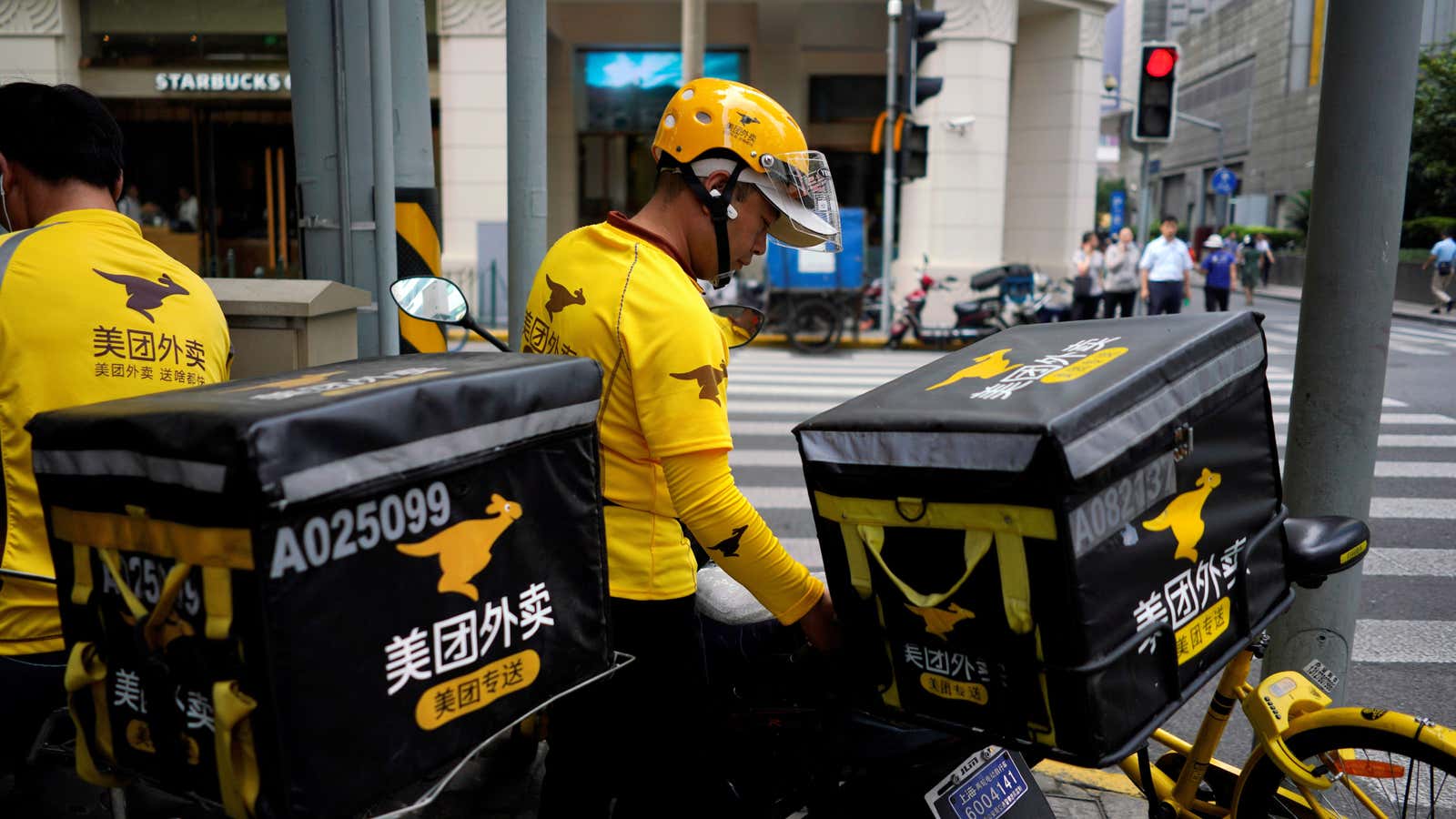Travis Kalanick tried to make it in China by spending billions with Uber, but lost to Didi Chuxing. Now, he’s trying again with shared kitchens.
In March, the South China Morning Post reported that the Uber co-founder was looking to bring his shared kitchens business, CloudKitchens, to China. CloudKitchens takes over properties and outfits them as commercial kitchens, then rents out the space to food businesses that want to expand without having to open a costly new location or serve customers from a public-facing storefront.
Kalanick bought a controlling stake in Los Angeles-based City Storage Systems, the holding company for CloudKitchens, for $150 million in March 2018. Both CloudKitchens and Kalanick have kept a low profile since—not surprising after his messy ouster as CEO of Uber in 2017—and neither responded to a Quartz request for comment.
CloudKitchens’ website offers little information on its current operations, other than the names of seven delivery-only brands it works with and a single testimonial from a local chef. The company has properties in Los Angeles and Seoul, and is reportedly eyeing space in Austin and Detroit, among other US cities.
The shared kitchens model—also called “ghost” or “dark” kitchens—is fairly novel in the US and Europe, where it’s being tested by companies including Uber and Deliveroo as a way of growing their food-delivery businesses. Amazon-backed Deliveroo built early rental spaces in windowless metal boxes similar to shipping containers, which helped coin the “dark” kitchen nickname. Uber, meanwhile, has leased kitchen space to “virtual restaurants” in Paris and partnered with a kitchen-rental company in London.
But shared kitchens are already popular in China, where cheap labor and generous investor financing have fueled a booming market for delivery services.
China’s online food ordering and delivery market hit 442 billion yuan ($62 billion) in 2018, and is expected to top 900 billion yuan by 2021. The market capitalization of Chinese food-delivery platform Meituan Dianping recently surpassed that of search giant Baidu, at more than $50 billion. Food-delivery companies think shared kitchens are key to their growth because they allow restaurants to expand their reach without shouldering all the overhead costs of opening their own kitchens.
Panda Selected is a Beijing-based shared kitchens company known as the “kitchen version of WeWork,” with more than 120 locations in mega-cities like Beijing and Shenzhen. Founded in 2016, it raised $50 million in February at an undisclosed valuation in a deal led by Tiger Global, an investor that previously backed Meituan Dianping, Didi, and Uber. Jike Alliance, a four-year-old shared kitchen business, says it has more than 200 brands using its kitchens, in four cities.
Panda Selected provides kitchen utensils, helps restaurants build their brands, and sells data analytics to help merchants boost their sales. Its fees vary by location, and data analytics cost extra. In Beijing, merchants pay around 20,000 yuan ($2,800) in “entrance fees” plus another 10,000 yuan for monthly rental fees and access to kitchenwares, Panda Selected’s founder Li Haipeng told local news outlet Kanshangjie (link in Chinese) in April. It’s unclear what’s meant by entrance fees. Neither Jike or Panda Selected could be reached for comment.
CloudKitchens advertises commercial kitchens “optimized for delivery” with multi-compartment sinks, commercial refrigeration, and stainless steel work benches. It says restaurateurs can “get started” for “just around $20,000 and two months deposit” compared to spending $1 million or more “to build out a brick and mortar restaurant.” It also says online that it will “help facilitate demand generation through every online ordering platform” below logos for Uber Eats, Postmates, Eat24, DoorDash, Caviar, and Grubhub.
The economics of shared kitchens
Success in the shared kitchen business boils down to how efficiently a can utilize its space. Because shared kitchens function as delivery hubs, they are ideally located in areas with lots of people and high demand, which can mean paying a premium for rent.
“Shared kitchens in China have the same problem as traditional kitchens, which are only used during peak hours, and the rest of the time it’s empty,” Tong Qihua, the founder of a dim sum chain that operates both in China and the US, told state broadcaster CGTN in April.
Panda Selected’s Li told Kanshangjie that the average catering business receives 290 to 320 orders each day, and can turn a profit after about two months of operating in a shared kitchen. That’s far quicker than a traditional restaurant would break even after opening a storefront.
Panda Selected is expanding rapidly, with plans to operate 200 locations by the end of August. Its kitchens average 400 to 500 square meters (4,350 to 5,350 sq. feet) and can be used by 15 to 20 restaurants. One of China’s most popular hotpot chains, Haidilao, is a Panda Selected client. The company isn’t profitable, but Li told Bloomberg that he hopes to reach break-even by the end of this year.
It’s unclear what Kalanick’s CloudKitchens can offer China that it doesn’t already have, other than a repeat of the ride-hailing funding war that ended with Didi acquiring Uber’s China operations in 2016. That sort of battle could be good for customers, but not necessarily for the companies trying to build a sustainable business by scrambling for market share.
